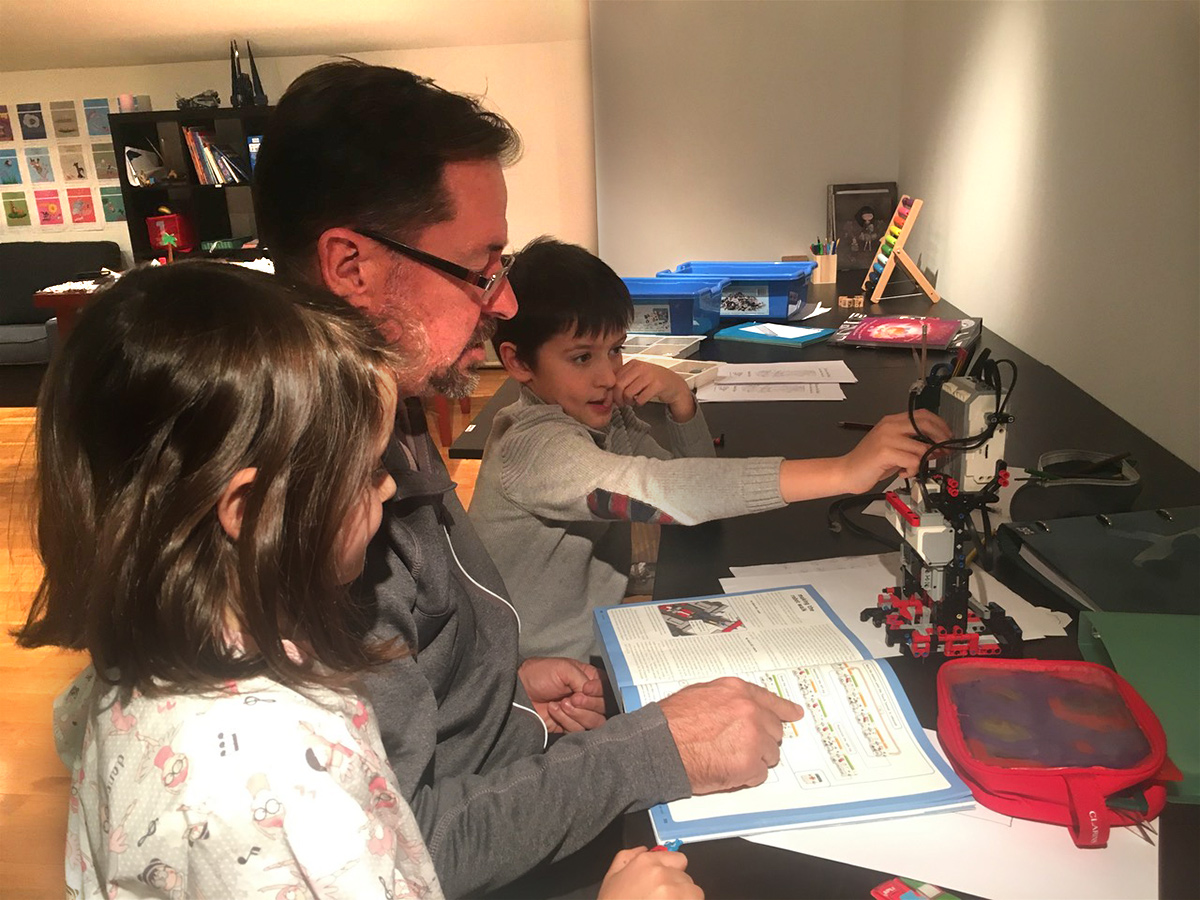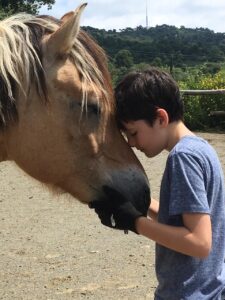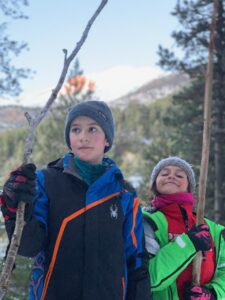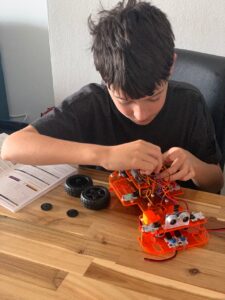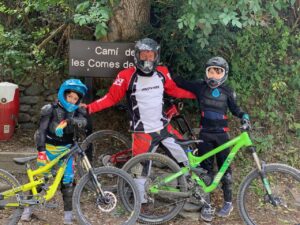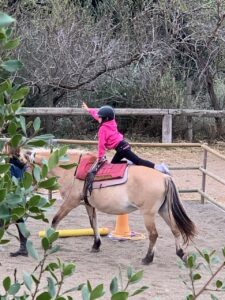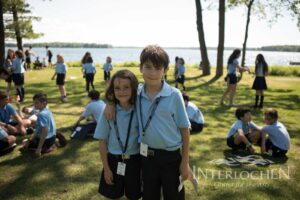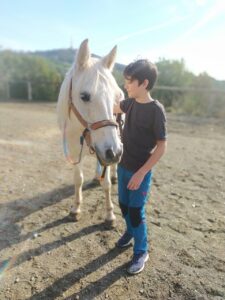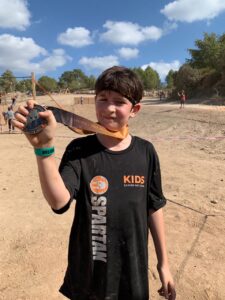Our Journey With NACD
by Captain Carol Benbrook
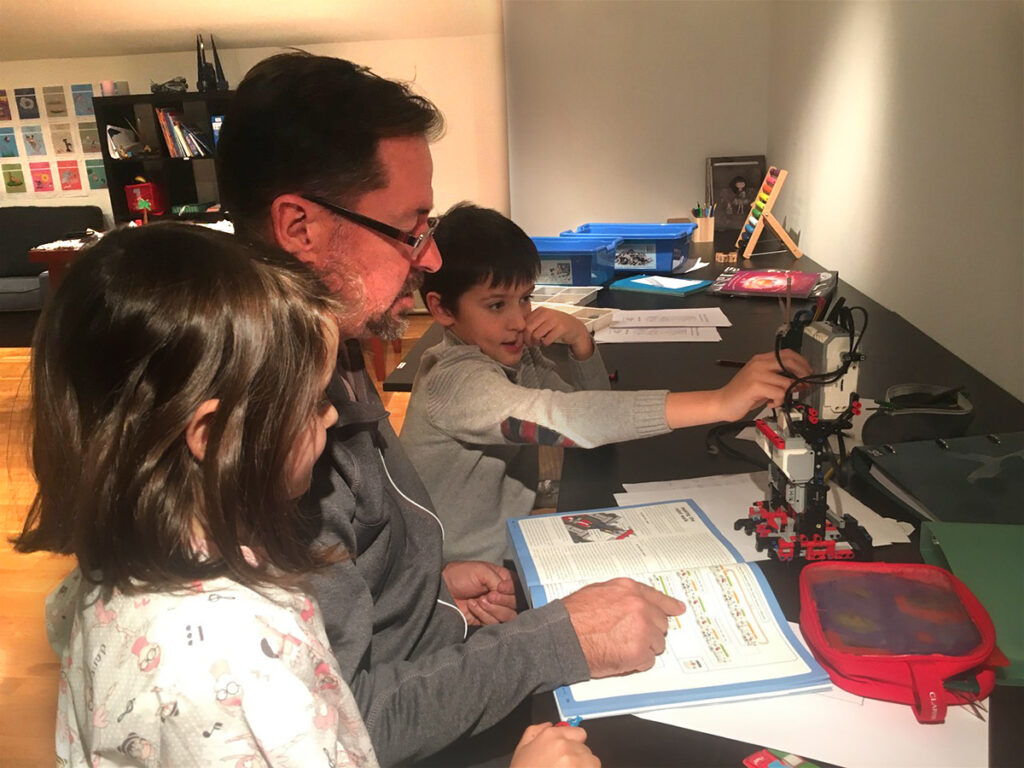 I will never forget the feeling I had the day when Jack was labelled as autistic, he was five years old and had received a heavy educational input from myself and my supportive family with reading, math and general learning. My husband and I had left our jobs to take our son to “the best” child psychologist in London, primarily because the private school Jack was attending in Andorra had asked us to withdraw him. The schools’ headmistress said that they did not know what was wrong with him, but they did not have the facilities to educate him. This was quite a shock to us because from when he was a baby, I had seen how intelligent he was and I thought the milestones he wasn’t making was a result of him going to a multi-lingual school for the past year, as before he went to school, he was reading well for his age and showed a great memory for stories and I had no reason to believe he had any issues. My husband and I work on Super yachts, myself as a captain and he as a chief engineer. Before we left our jobs for the trip to London, we had had an amazing guest, who was a pioneer in reducing biological age and in practical uses of increasing knowledge of neuroplasticity. We had mentioned to him why we were leaving our jobs and he gave us the following parting words of advice:
I will never forget the feeling I had the day when Jack was labelled as autistic, he was five years old and had received a heavy educational input from myself and my supportive family with reading, math and general learning. My husband and I had left our jobs to take our son to “the best” child psychologist in London, primarily because the private school Jack was attending in Andorra had asked us to withdraw him. The schools’ headmistress said that they did not know what was wrong with him, but they did not have the facilities to educate him. This was quite a shock to us because from when he was a baby, I had seen how intelligent he was and I thought the milestones he wasn’t making was a result of him going to a multi-lingual school for the past year, as before he went to school, he was reading well for his age and showed a great memory for stories and I had no reason to believe he had any issues. My husband and I work on Super yachts, myself as a captain and he as a chief engineer. Before we left our jobs for the trip to London, we had had an amazing guest, who was a pioneer in reducing biological age and in practical uses of increasing knowledge of neuroplasticity. We had mentioned to him why we were leaving our jobs and he gave us the following parting words of advice:
- Do not take the psychologist’s opinion as the only option, because they specialise in only one specific part of the child, which is a result of the problem.
- Ask about possible effects of other factors, such nutrition and genetics.
- Read the book “The brain that changes itself” before you make any major decisions. (This was key to us understanding what to look for in the solution which we finally found in NACD).
After a very expensive, one hour evaluation of Jack, the psychologist in London advised us, in no uncertain terms, that I should move to London and put Jack in a school specialising in children with autism (which he was the resident phycologist for), he advised us that Jack would regress and he would be nonverbal by the time he was 8 years old, he would never be very academic, although he was clearly intelligent by nature and if he did manage to have a career as an adult, he was very likely to grow up to be a selfish and self-involved, egotistical adult, who would have little thought for others. He would not be able to do math or learn to play music, as that part of his brain would never function properly.
My whole world fell apart, we asked the psychologist if there could be any links to genetics or diet that could help him, but he shut us down. We left his office feeling completely overwhelmed. How could we have an autistic child, could there be such low expectations of child of whom we had seen had a natural high intelligence level, who was happy and fun to be with and furthermore, what could we do to help him?
Luckily, throughout our training and careers, we have been taught not to mop up the symptoms of a situation but to find the root cause of the problem and to find a solution to fix these problems. My husband instantly identified that we should find somebody who understood how the brain works and how to fix the neurological root cause of Jack’s disability.
After over a year of home schooling and trying different methods to help an autistic child without improvement, I came upon The Listening Programme (developed by NACD), which is a music recording on an iPod, linked to bone conducting headphones, which trains the ears to learn audible frequencies. Within the first month of using TLP, I saw the first real step forward, in what had been over 12 months of intensive and soul-destroying work, one-on-one with speech therapists, occupational therapists and many other experts with no steps forward and so I read all the recommendations that parents had given on TLP’s website, hoping to find like-minded parents that had found the solution we were looking for; luckily, one of the recommendations mentioned NACD. I searched the internet and was so delighted when I realised that their method of working with disabilities was based on fixing the root cause of the problem, through a series of proven exercises, based on an understanding of the ‘plastic brain’, the effects of neurological issues and how they manifest themselves in symptoms. NACD had managed to help a range of children with disabilities of all kinds of different labels as well as “normal” and gifted children.
After an initial interview with an assessor, we were sent an introductory audio file to listen to, where the NACD method was outlined. I was a little overwhelmed hearing about digit spans etc, but intrigued and totally onboard, so a short while later, in September of 2014, with full enthusiasm, we went to Chicago for Jack’s assessment. Ellen Doman completed a one-on-one assessment of Jack in a hotel room office, whilst we sat anxiously in the foyer. She then brought us into the room and explained how she had identified a number of issues including: sensory dysfunction, developmental motor issues and poor auditory sequential processing amongst other developmental problems. She explained that he was ‘stimming’ and told us what this meant, I still remember being on the phone to my mum during the 4-hour drive home, explaining that Jack was watching movies in his head at hundreds of times the speed and getting a dopamine kick from it, and that this was more addictive than morphine and when he was ‘in a world of his own’ he was actually completely immersed in these movies. It took a long time for this to sink in. I was hesitant at first, as it seemed so far-fetched, but over the years, the theory was proven again and again and when Jack was communicating well enough, he explained this in his own words. Ellen also told us where he was in his fine and gross motor skills, specifically linked to where he was neurologically and noted that Jack was using his peripheral vision over his central vision and she explained why this was not good.
Ellen reassured me that there was a lot we could do with Jack to get him back on track and I was very impressed with the systematic and detailed approach. She said that she would send me a program for Jack and to contact them with any questions or concerns, but in the next few days, while she put the program together, we should avoid dairy, reduce sugars and gluten, not watch any movie or TV shows more than once and get as much time reading together, engaged in games and conversation and to go on walks etc as much as possible. We saw a big improvement within two weeks, particularly in Jacks’ responsiveness and use of language, which we later confirmed was due to stopping milk is his diet as he was lactose intolerant (something I did not really believe in before I saw the evidence in Jack). Our journey on a new path had begun.
The First Program
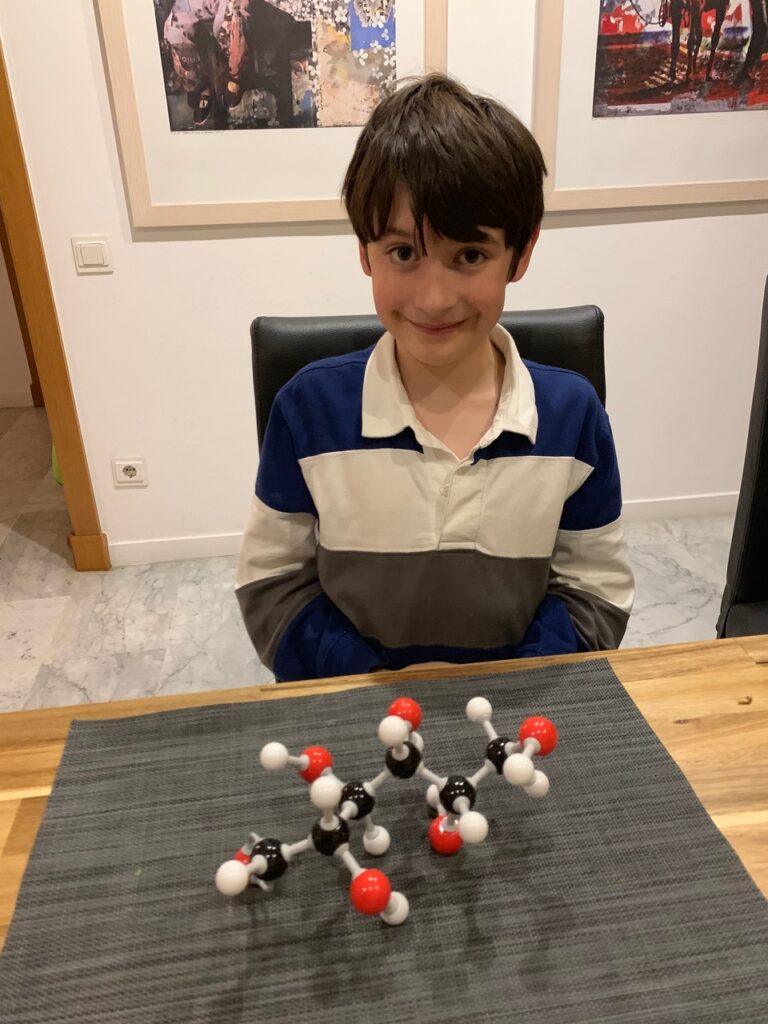 We were somewhat overwhelmed with the first few programs as they were educating us on how to help and improve Jack’s issues. With the whole family completely involved in every step of the way on how to teach and retrain Jack. NACD reset the way we understood education (My mother lives with us and was the primary teacher because I have a demanding job and my Mum is trained in educating young children and so it took her a while to adapt to these new methods). The program made sense as a whole, but we could not quite see the reasons for some of the tasks until a year or so later, but we started working on the basic fundamentals of a properly functioning brain, starting with developmental motor activities, as well as continuing with TLP and implementing many basic sequencing exercises. Ellen explained where Jack was with math (which was a lot lower than we had realised) and how to teach him the meaning and sequence of number and the difference between math facts and math problem solving. We learned how to teach reading with flash cards of the first 1,000 words and the importance of frequency, intensity and duration. Having the training videos online to access whenever we needed a refresher of how to complete a task has been incredibly useful and the simplified approach to teaching math has helped us teach the children in a fun and engaging way.
We were somewhat overwhelmed with the first few programs as they were educating us on how to help and improve Jack’s issues. With the whole family completely involved in every step of the way on how to teach and retrain Jack. NACD reset the way we understood education (My mother lives with us and was the primary teacher because I have a demanding job and my Mum is trained in educating young children and so it took her a while to adapt to these new methods). The program made sense as a whole, but we could not quite see the reasons for some of the tasks until a year or so later, but we started working on the basic fundamentals of a properly functioning brain, starting with developmental motor activities, as well as continuing with TLP and implementing many basic sequencing exercises. Ellen explained where Jack was with math (which was a lot lower than we had realised) and how to teach him the meaning and sequence of number and the difference between math facts and math problem solving. We learned how to teach reading with flash cards of the first 1,000 words and the importance of frequency, intensity and duration. Having the training videos online to access whenever we needed a refresher of how to complete a task has been incredibly useful and the simplified approach to teaching math has helped us teach the children in a fun and engaging way.
The program progressed with Jack and was adapted to suit his level of ability rather than his age. We hadn’t realised how far behind he was on basic neurological assessments initially, but over the years, he has caught up substantially and academically, he has overtaken his peers.
One of my most vivid memories from before NACD, was watching a mother with her 7-year-old boy in Barnes and Noble, she was discussing a topic in the Encyclopaedia with him and they were happily engaged in a two-way conversation. My heart sank and my world fell apart as, I thought, I would never have this relationship with my son, as he would be non-verbal, never mind able to hold a conversation, but now Jack is thriving, he is almost fluent in Spanish, has basic Chinese and French, is learning to study independently and is able to take on any chore in the house. Jack has also just published his first book called “Albert and the Karnikans” in the UK, a process that he had a lot of involvement with, (this is one of many stories he has in his creative space at home). Jack enjoys playing the piano and cello, which I will admit was a struggle for the first few years, he has a very high level of vocabulary, actively engages in conversation and discussions (although his is still quite shy in social situations) and last year, at aged 11, he scored at sophomore college level on his math test. Jack loves to read philosophy and history and writes his own computer code to make basic computer games. In his free time, he draws comics and tells and re-enacts stories and plays with his sister for our entertainment. In short, he is thriving.
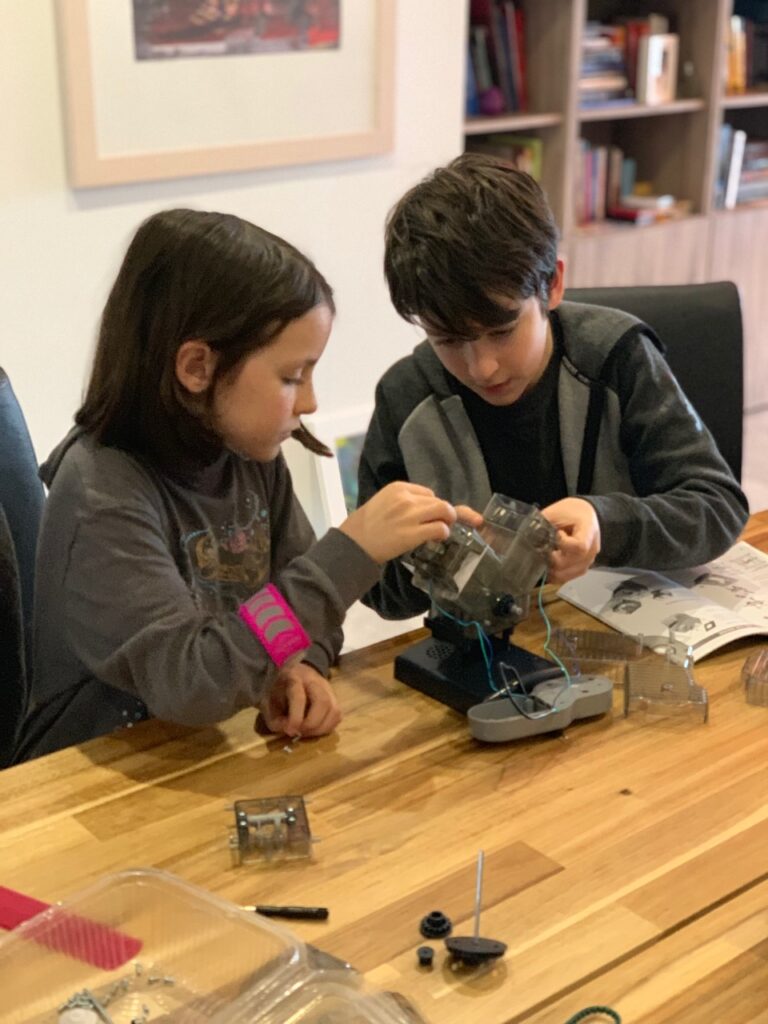 Our daughter, Charlotte, is now 10 years old. She was an “average child” when she began NACD at 4 years old (we removed her from school when they asked us to take Jack out). Charlotte loves maths and she tested sophomore level math at 9 years old. She scores 12 in her digit spans in person, 9 on Simply Smarter, which makes more advanced learning in STEM subjects and coding more enjoyable and engaging for her. About a year after starting on NACD, Bob and Ellen discovered she had issues related to reading that a psychologist would have labelled as dyslexia and with early intervention we were able to fix this issue with simple methods that we easily implemented into our daily program, she now tests at reading grade 12 and is an avid reader. She is happy, highly capable and is becoming an independent learner who loves history and science. She plays the harp, piano and violin and is almost fluent in Spanish and is learning Chinese and French.
Our daughter, Charlotte, is now 10 years old. She was an “average child” when she began NACD at 4 years old (we removed her from school when they asked us to take Jack out). Charlotte loves maths and she tested sophomore level math at 9 years old. She scores 12 in her digit spans in person, 9 on Simply Smarter, which makes more advanced learning in STEM subjects and coding more enjoyable and engaging for her. About a year after starting on NACD, Bob and Ellen discovered she had issues related to reading that a psychologist would have labelled as dyslexia and with early intervention we were able to fix this issue with simple methods that we easily implemented into our daily program, she now tests at reading grade 12 and is an avid reader. She is happy, highly capable and is becoming an independent learner who loves history and science. She plays the harp, piano and violin and is almost fluent in Spanish and is learning Chinese and French.
NACD has made us realise that we can all reach our full potential. The methods we have learned and implemented into improving ourselves has had an everlasting positive influence on us as individuals and as a family. We have all developed with Jack and Charlotte in the process of learning the NACD methods, we have a greater understanding of how the brain works, specifically, how we learn, which has led to a great desire to help other families and children who are experiencing the fear and frustration that we had in our lives only six years ago. All of our family have improved in so many ways and as a result of NACD our lives are so much more enriched, we have become better leaders, communicators and able and willing to take on new academic challenges that otherwise may have been daunting.
My mother, who is now 72 years old, is improving her own brain capability and is reaching her own true potential by completing NACD’s, Simply Smarter in her free time. She is learning Spanish and is still teaching both children English and math.
If I could give advice to other parents it would be to trust the incredible knowledge that the team at NACD have from their education, training, years of experience and teamwork which they draw on with great care, when making up a new program which is specifically designed for each child.
Myself and my family will be forever grateful to Bob, Ellen and everyone at NACD for giving my children the chance to realise their true potential and for making us a stronger and happier family, we intend to continue with NACD for the rest of our children’s journey through education.

